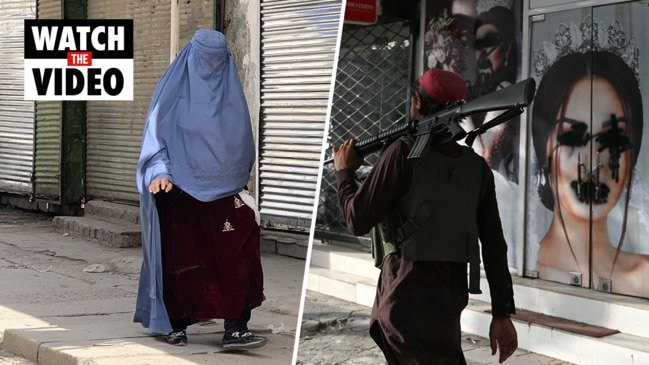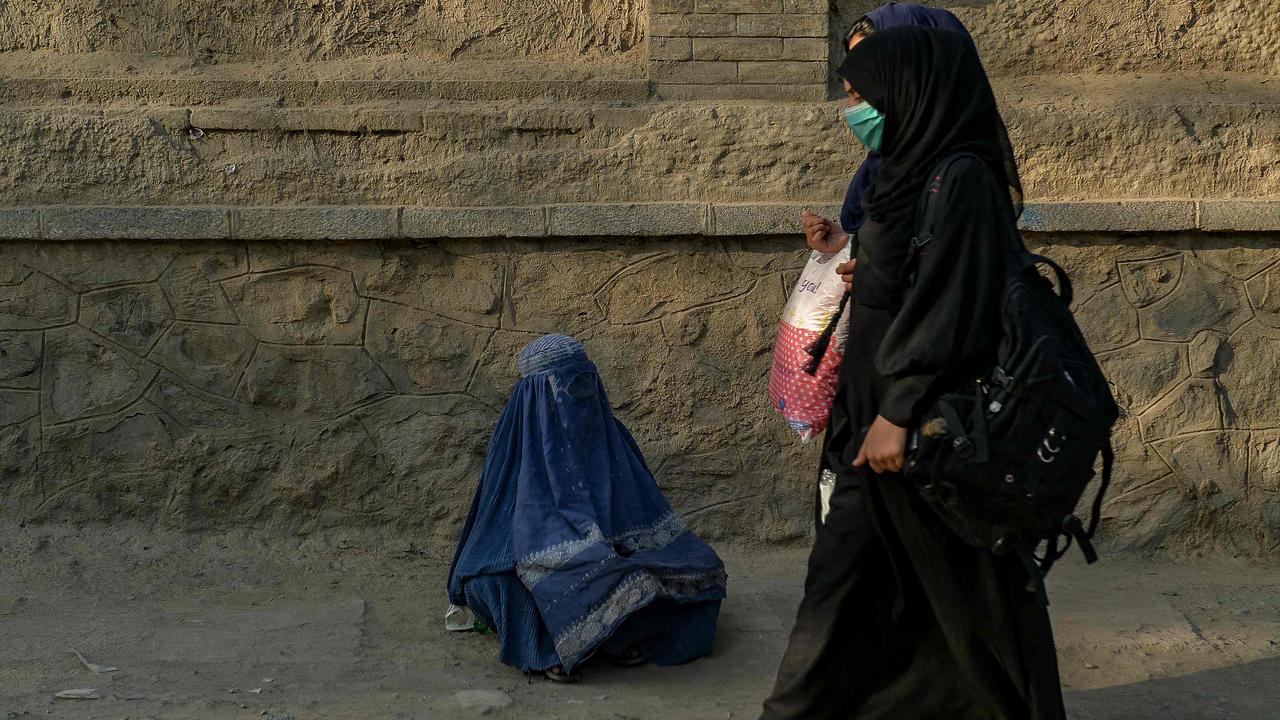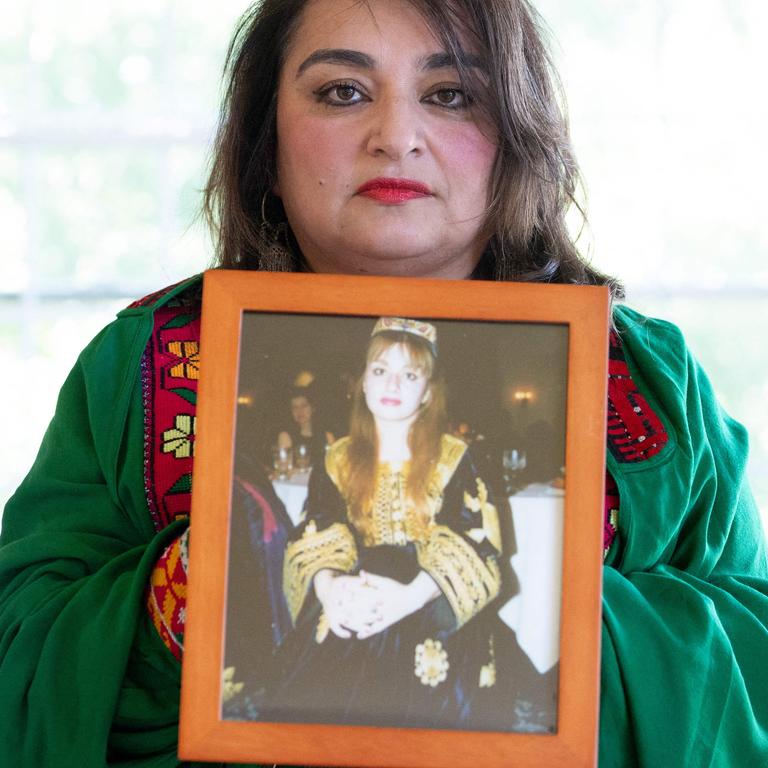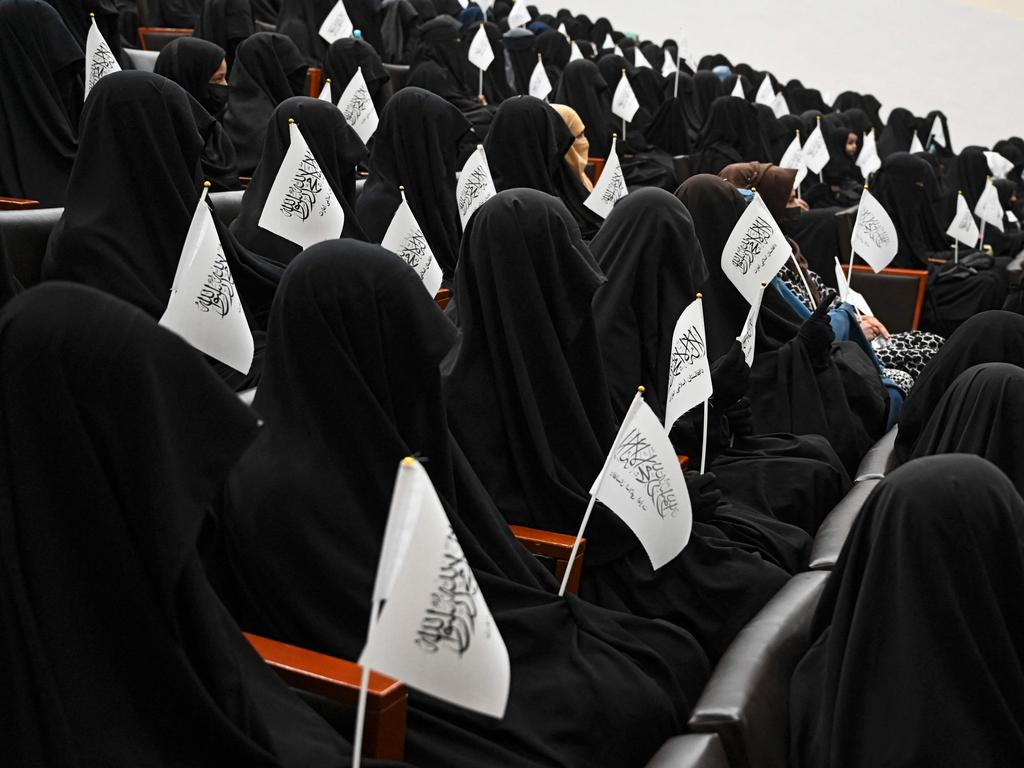Afghan women rise up against Taliban and restriction on rights
The Taliban is battling a new revolution from the women they seek to oppress, with thousands of Afghans taking to social media to fight.

The Taliban is facing a new fight from the women they seek to oppress, as thousands of Afghans move to social media to fight the militant regime’s restrictions on their freedom.
It’s been more than a month since the Taliban swept to power in Afghanistan, after the group took advantage of the US’ promise to withdraw all troops by August 31.
After a handful of protest in late August and early September, which were met with deadly force by Taliban forces, some Afghans began to pressure the group in a different way.
Afghan women across the globe began to celebrate Afghanistan and its rich and vibrant culture, before the Taliban ruled.
The Taliban was first in power in Afghanistan between 1996 and 2001 and was notorious for imposing its strict interpretation of sharia law.
That law forbade women from leaving the house without a male relative to escort them, and it also meant women could not leave home unless they were completely covered by a burka.

Bahar Jalali, an Afghan-American historian, saw Afghan women return to this way of dressing earlier this month, when dozens of black-clad women in full face veils marched at a pro-Taliban rally in Kabul.
In response, Ms Jalali launched a social media campaign and hashtag to instead highlight the vibrant colours of traditional Afghan clothes.
“I was very concerned that the world would think that those clothing worn by those women in Kabul was traditional Afghan clothing, and I don’t want our heritage and culture to be misrepresented,” Ms Jalali, who lives in the US state of Maryland, said.
Ms Jalali, 46, created the social media hashtags #DoNotTouchMyClothes and #AfghanistanCulture, which quickly became popular, with women posting photos of themselves wearing colourful, embroidered Afghan clothing and smiling for the camera.
“Afghan women don’t wear hijab,” Ms Jalali told AFP.
“We wear a loose chiffon headscarf that reveals the hair. And anybody who’s familiar with Afghanistan history, culture, knows that the clothing worn by those women have never been seen before in Afghanistan.”

This is Afghan culture. I am wearing a traditional Afghan dress. #AfghanistanCulturepic.twitter.com/DrRzgyXPvm
— Dr. Bahar Jalali (@RoxanaBahar1) September 12, 2021
Ms Jalali was referring to the demonstrators who were photographed sitting in a university lecture hall earlier this month.
About 300 women – covered head-to-toe in all black in accordance with strict new dress policies for women in education under the Taliban – waved Taliban flags, as speakers railed against the West and expressed support for the hardline Islamists.
“Afghan women don’t dress that way. Afghan women wear the colourful dresses that we showed the world.”

Thousands of other women have heeded the protest call, posting photos of themselves in beautifully embroidered, traditional Afghan clothes.
Marjan Yahia, a 28-year-old make-up artist who moved to Canada from Kabul when she was six, has posted a number of protest photos.
“This is traditional Afghan clothes, ones that I wear proudly, that I have the ability to wear peacefully here while the women in my home of Afghanistan are forced to cover themselves,” Ms Yahia wrote on one of her Instagram photos.
“I stand for the women of Afghanistan, that have, and continue to suffer at the hands of the Taliban,” she wrote on another.
The #DoNotTouchMyClothes movement continues to grow as Afghan women celebrate their culture.
My Afghan Clothes.#DoNotTouchMyClothes#AfghanistanCulture#AfghanWomen#AfghanistanWomen#DoNotRecognizeTaliban#SouthAsiapic.twitter.com/3qPgg8ALnj
— Natasha Fatah (@NatashaFatah) September 26, 2021
Traditional colourful dresses from across Afghanistan at my Henna Night celebration.
— Rabia Nasimi (@RabiaNasimi) September 28, 2021
This is our culture.#DoNotTouchMyClothes#AfghanistanCulturepic.twitter.com/JCIX1DphK9
Women’s rights in Afghanistan were sharply curtailed under the Taliban’s 1996-2001 stint in control, but since returning to power last month, they have claimed they will implement a less extreme rule.
Women will be allowed to attend university, as long as classes are segregated by sex or at least divided by a curtain, and women must wear an abaya robe and niqab, which cover the whole body and face, save for a slit for the eyes.
Ms Jalali moved to the United States when she was seven.
She remembers Afghanistan under secular rule, with some women wearing short skirts and sleeveless dresses on the streets of Kabul, while others choose to wear headscarves.
In 2009, Ms Jalali returned to Afghanistan to teach history and gender studies at the American University in Kabul, in what was the country’s first gender studies program.
After almost nine years there, she returned to the United States and now teaches Middle Eastern history at Loyola University Maryland.
“My students were very passionate about gender equality, male and female students,” she recalled.
“So I really can’t imagine how this new generation of Afghanistan that has never witnessed Taliban rule, that has grown up in a free and open society, is going to be able to adjust to this dark period that Afghanistan has now entered.”







